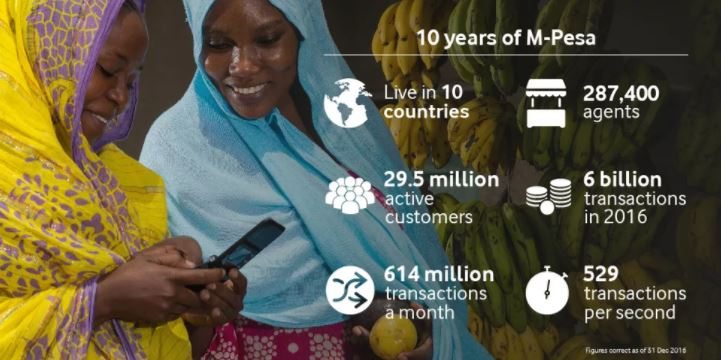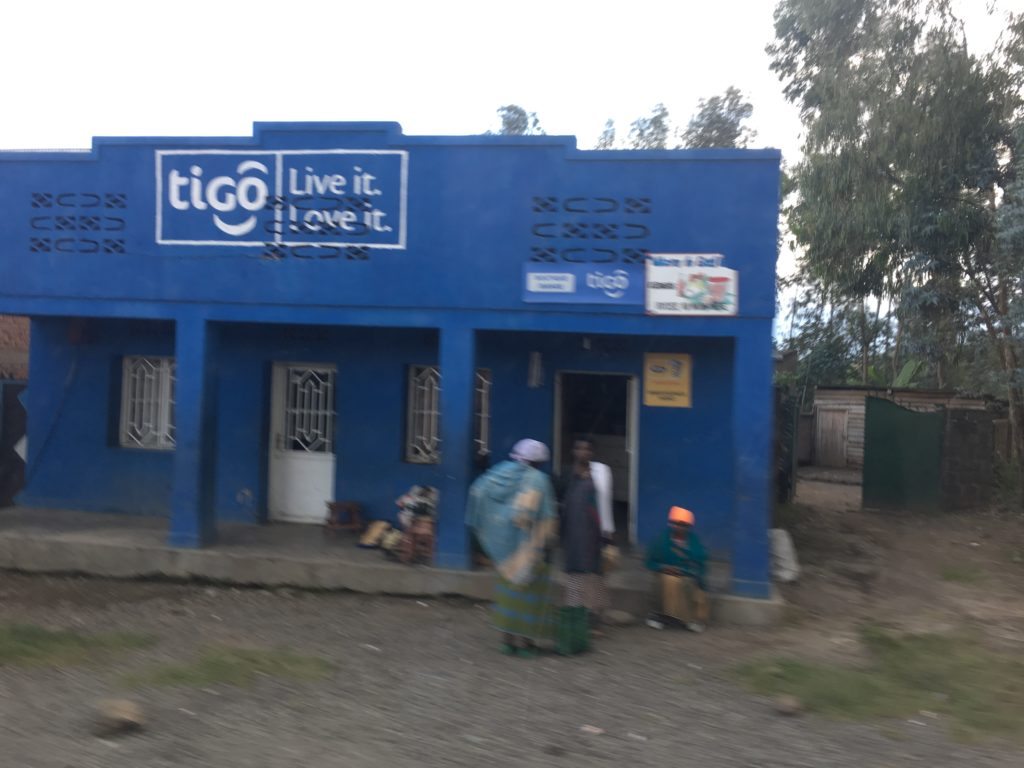
During the discussions at Dot Finance Africa, there was a very interesting dialogue about the mobile network operators (MNOs), with panels featuring Airtel and M-PESA. It was interesting to hear them talking directly about how they focus upon the customer experience and their singular objective of convenience. Both MNOs talked about customer convenience. The convenience of being able to cash in and cash out anywhere. In fact, they employ young folks to man their booths, of which there are many. As we walked around Kigali, I would say there was a Tigo, Airtel or MTN booth to cash in or cash out every five metres. That's like having an ATM every three strides. Huge numbers of these operators exist everywhere, and their advertising is ubiquitous. As we drove around, almost every building was an advert for one of these guys. You can’t miss them.
Bearing in mind that M-PESA is the daddy of them all, and celebrating a decade of operations, it’s worth reminding everyone what they’ve achieved in a decade. A decade after its launch, M-PESA has expanded to 10 countries, boasts 29.5 million active users and processes up to 614 million transactions per month.
M-PESA is used by 96% of Kenyan households and has a virtual monopoly there, squeezing out nimble competitors like Airtel and ensuring that it’s only interoperability is with itself. That is a clear contrast with countries like Tanzania where all the MNOs allow mobile money transfers seamlessly between networks.
Interestingly Michael Joseph, founding CEO of Safaricom and now the director of mobile money for Vodafone, said in an interview: “if we applied Western standards to all of the things we do, we would probably still be in the dark ages in Africa.”
True.
Equally, you have to bear in mind that mobile money in Sub-Saharan Africa is way ahead of the West. The USA processed USD$112 billion through mobile payment systems in 2016. For Kenya that figure is just USD$1 billion (KSh102 billion). Bear in mind however that this is a country of just over 45 million people compared to the USA’s 325 million, and most Kenyans live on a lot less than the average American. The average purchasing power of a US citizen is 17 times higher than a Kenyan, and you get the picture.
An MIT study published last year estimated that M-PESA is responsible for lifting two percent of households in Kenya out of poverty. That's equivalent to 194,000 families who now no longer live below the poverty threshold on less than $1.25 per day.
Mobile wallets and mobile money are a phenomenon in Africa and specifically in Kenya. It is therefore notable that the banks went from trying to shut M-PESA down via the regulators, to competing with the MNO on rates. In particular, Kenya’s Equity Bank has opened its own MNO to try to compete. But it isn’t succeeding. This is in part because Kenyans don’t trust banks, but more importantly it’s that banks are not competing effectively.
Kevin Amateshe, a Product Manager with M-PESA, stated that this is because the banks focus on competing with M-PESA. They copy their products, set their rates and generally imitate what M-PESA does. That is not right. They should be focusing upon the customer.
How well put.
Banks are product-centric and when they see a nimble, agile competitor taking over a market that they think they should own, they copy the competitor. Where’s the customer focus?
In a separate panel discussion, Airtel said that their mission was all about convenience. Making the customer experience the easiest, simplest and best it can be. It’s all about easy, frictionless simplicity of making and taking mobile payments.
Yes! This is what the banks don’t get, they say. The banks believe that banking products is what mobile money customers want. It’s not. It’s the ease, security, trust and belief that this is the best way to do things.
Intriguingly, in another chat with a local Rwandan that I mentioned last week, he told me that he uses his mobile wallet for savings. Do they give good interest rates?, I asked. No, he said. They don’t give any interest at all. So why do you keep your money there then?, I asked. Because it’s safer there than in my pocket, he replied. By leaving it there, I ensure that I don’t spend it.
This is the state of the nations we deal with, and the MNOs are getting it 100% right in their approach. Simple, easy, secure and trusted. No complexity. And nothing like a bank.
Chris M Skinner
Chris Skinner is best known as an independent commentator on the financial markets through his blog, TheFinanser.com, as author of the bestselling book Digital Bank, and Chair of the European networking forum the Financial Services Club. He has been voted one of the most influential people in banking by The Financial Brand (as well as one of the best blogs), a FinTech Titan (Next Bank), one of the Fintech Leaders you need to follow (City AM, Deluxe and Jax Finance), as well as one of the Top 40 most influential people in financial technology by the Wall Street Journal's Financial News. To learn more click here...


